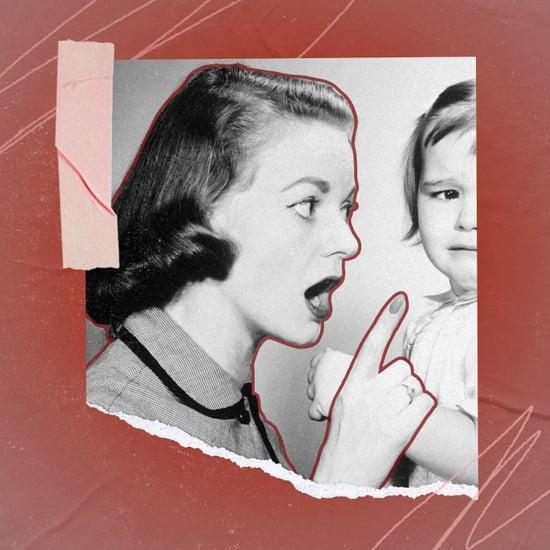Should You Tell Your Kids You're in Marriage Counseling?
Should You Tell Your Kids You're in Marriage Counseling? A Licenced Psychologist Weighs In

It's normal for the nature of every marriage to ebb and flow — sometimes things are great, and sometimes, not so much. Although some couples (like Kristen Bell and Dax Shepard!) suggest marriage counseling or couples' therapy no matter your marriage's status, typically, couples choose to entertain the idea of counseling because of recurring issues and pain points. No matter the reason you've chosen to dive into marriage counseling, the next decision that may weigh on you is whether or not to clue in your kids — young or old.
We asked Dr. Deborah Roth Ledley, a licenced psychologist and author of The Worry Workbook For Kids, to share her thoughts on when and how much you should say to your little ones — especially preschool/elementary-age kids and those kiddos who experience anxiety — about your regular counseling sessions.
How You Should Approach Your Kids About Marital Issues, If Applicable
No marriage is perfect, and every couple will bicker and have some sort of issue at some point. So should you keep your kids in the dark to protect them or let your kids know what's going on? Dr. Ledley said that whether you mean for them to be in the know about your issues or not, your kids probably already have a feeling that something's going on, which is why she recommends being as upfront with them as possible.
"What I have learned over the years of working with kids is that they are really astute, even at young ages," she told POPSUGAR, adding that kids with parents who are going through a tough time are usually aware of it in some way, shape, or form. But in terms of including your kids in the conversation, Dr. Ledley said: "It is easier to protect younger kids than older kids. We also want to think about the duration of our marital difficulties. All couples go through a rough patch from time to time, and I don't think kids need to know about all these normal ups and downs. If problems are prolonged, and likely heading to some changes that are going to impact the family as a whole, kids should be informed."
How to Tell Your Kids You're in Marriage Counseling
"It is OK to say, 'Mom and Dad are going to see a doctor who helps parents who want to learn to get along better.'"
Although being transparent with kids is important, it's normal to want to protect them and ensure you're not making them nervous or scared about the future of your marriage, and thus, their family unit. However, going to marriage counseling is an important step for many couples going through a rough patch, and because getting help and trying to make it work are positive things, looping in your child could help assuage their worries a bit, until you're more certain things are going to be OK (or on the flip side, if they aren't).
"Again, age is important here," she said. "For very young preschoolers and early grade school kids, Mom and Dad can go off to a meeting without it arousing too much suspicion. Older kids are going to be more curious, particularly if parents don't typically spend time together (for example, kids will see right through parents saying they are going on a 'date night' every week if they haven't gone on a date in years) or if one parent is usually always home and one is more likely to go out and do things in the evenings or on weekends. It is OK to say, 'Mom and Dad are going to see a doctor who helps parents who want to learn to get along better.'"
What to Do After Telling Your Kids You're in Counseling but While You're Still Working Through Things
"In an ideal world, kids would grow up with calm, loving parents who treat each other with respect. However, we all know it is impossible to not squabble in front of our kids from time to time about day-to-day things, and for couples with a great deal of conflict, it can be hard to limit that to behind closed doors," she said.
So if you and your spouse are working through your issues and have chosen to share with your kids that you're in counseling, continue to be transparent with them throughout the experience. Your problems aren't going to go away overnight just because you're seeing a professional, so if you fight in front of your kids, Dr. Ledley recommends having upfront conversations — apologise for fighting in their presence, and let them ask questions so that "we get away from assuming we know what kids hear, how they interpret it, and what they might be worrying about." Rather, you'll know how they feel and hopefully how to help them feel less worried or anxious and can let them know that your issues are in no way their fault and that no matter what, how much you love them is never in question.








